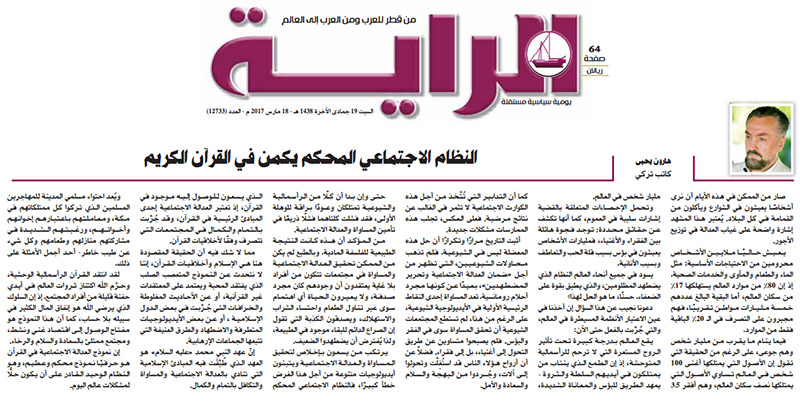Bigotry: The Dark Danger
Celebrating World Food Day Does not Satiate Hungry People

Aar is a little Somalian kid. He is four years old. Compared to his peers, his appearance is quite small. Aar has many health issues. He gets exhausted too quickly. He has a persistent and lingering headache. He feels difficulty while breathing. His mobility is poor; he can’t run like his peers. He suffers from being easily distracted.
What lies beneath all these ailments from which Aar suffers is not a microbe or a genetic illness. Aar is malnourished. Starting from his birth, he was not regularly fed by his mother. Later on, as he grew older, he could not get sufficient food.
Aar is a solid example of malnourishment statistics that we read about in the newspapers or see on television .
In our world, 795 million people suffer from hunger. Every one person out of nine is hungry. Out of every three children, one of them is undernourished. Aar is one of them. If Aar is not fed regularly as soon as possible, he will be one of those six million children who die this year. According to data provided by the UN, 16,500 children lose their lives due to malnutrition or hunger. (1)
Like any other person, Aar has the right to have access to healthy and sufficient amounts of good quality food. Yet for technical or political reasons , this is impossible. However, according to the UN World Food Program, the daily average expense of a child suffering from hunger is only 25 cents.
Just stop for a moment and think about the trivial things on which people spend great amounts of money everyday. Alcohol, cigarettes, weapons, new furniture or new, more fashionable clothes . It is possible to feed a child for months, if people were willing to cut back on some of these expenses. Let’s make a more solid comparison; in 2014, the money spent on armaments worldwide was $1.5 trillion , that is about $4 billion a day. (2) It is more than possible to prevent the deaths of starving children all over the world with the money spent on arms in only one day.
October 16th is celebrated as World Food Day. On this day various conferences and panels are held and reports are presented. The Agriculture Ministers of countries around the world inform people about increasing agricultural production, scientists talk about increasing productivity in agricultural areas, relief agencies announce increasing aid. However, despite all these announcements, 11 out of every 100 people, in other words, 800 million people worldwide, continue to lose their lives due to malnourishment every year. (3)
There are various reasons for this disastrous situation. The wasting of food is only one of the reasons. In fact, humanity produces adequate food for feeding the entire world population every year. However, one third of this production, which is 1.3 billion tons of food, is lost due to financial reasons and geographical borders. Incorrect policies in food imports and exports play a major role in the lack of nutrition in those countries. (4) A total of 222 million tons of food is wasted per annum in the United States alone; this is approximately the entirety of food production of Sub-Saharan Africa.
Some of the reasons behind this lack of nutrition in certain areas of the world are not being able to utilize agricultural areas and water resources in a satisfactory manner, not fighting against harmful pests properly, falling short of investments that would improve food production, and major population increases as well as poor climate conditions.
There are many local or global institutions that develop projects by spending huge resources to find solutions to the food issue yet it is not possible to say that these present ample solutions to the problem. The reason for this inadequacy is in general the projects’ shortcomings in terms of humane and moral values.
The real and accurate resolution is to strive for removing selfishness, encouraging brotherhood, unity and non-discrimination amongst people, and making good morality prevail.
Once food programs are fortified with a moral dimension, there will be no more wastefulness and even excessive consumption that would most typically result in profligacy would be prevented. By promoting social cooperation and implementing just practices in all areas, societies will be strengthened in both moral and economic terms.
For instance, shifting the cultural outlook on women in a positive direction will facilitate favorable outcomes in overcoming hunger. According to the World Health Organization, owing to gender discrimination in underdeveloped countries, girls and women are under more intense persecution when compared with men. (5) In certain countries, women are allowed to eat only after the entire family has had their meal; needless to say, such discrimination also affects pregnant women. Every one child out of six is born underweight in underdeveloped countries. In those areas living through scarcity, it is only when all women - regardless of their being mothers or not - are held in high esteem will they be well -fed and taken care of: Thus, giving birth to and bringing up healthy new generations will be possible.
The issue of hunger will be come to an end when a person offers his food to poor people and orphans and hands over an item that he never uses to another person and helps others without asking for anything in return. Such a community will become richer and prosperous, and poverty and hunger will naturally diminish. This is not a utopia or a dream that is difficult to make real; it requires that people rediscover their sense of altruism, something that – quite sadly – has been forgotten.
References:
(1) http://www.un.org/en/globalissues/briefingpapers/food/childhunger.shtml
(2) http://www.sondevir.com/analizler/173899/dunya-yeniden-silahlanma-yarisina-girdi-video
(3) http://www.fao.org/3/a-i4646e/i4646e01.pdf
(4) http://www.unep.org/wed/2013/quickfacts/
(5) http://www.who.int/whr/2003/chapter1/en/index2.html
Adnan Oktar's piece on MBC Times:
http://www.mbctimes.com/english/celebrating-world-food-day-does-not-satiate-hungry-people
2015-10-18 22:39:46







